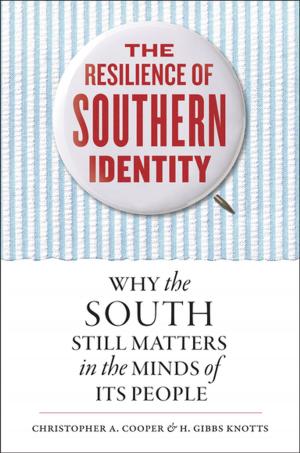Blurred Borders
Transnational Migration between the Hispanic Caribbean and the United States
Fiction & Literature, Literary Theory & Criticism, Caribbean & West Indian, Nonfiction, History, Americas, Caribbean & West Indies| Author: | Jorge Duany | ISBN: | 9780807869376 |
| Publisher: | The University of North Carolina Press | Publication: | September 12, 2011 |
| Imprint: | The University of North Carolina Press | Language: | English |
| Author: | Jorge Duany |
| ISBN: | 9780807869376 |
| Publisher: | The University of North Carolina Press |
| Publication: | September 12, 2011 |
| Imprint: | The University of North Carolina Press |
| Language: | English |
In this comprehensive comparative study, Jorge Duany explores how migrants to the United States from Cuba, the Dominican Republic, and Puerto Rico maintain multiple ties to their countries of origin.
Chronicling these diasporas from the end of World War II to the present, Duany argues that each sending country's relationship to the United States shapes the transnational experience for each migrant group, from legal status and migratory patterns to work activities and the connections migrants retain with their home countries. Blending extensive ethnographic, archival, and survey research, Duany proposes that contemporary migration challenges the traditional concept of the nation-state. Increasing numbers of immigrants and their descendants lead what Duany calls "bifocal" lives, bridging two or more states, markets, languages, and cultures throughout their lives. Even as nations attempt to draw their boundaries more clearly, the ceaseless movement of transnational migrants, Duany argues, requires the rethinking of conventional equations between birthplace and residence, identity and citizenship, borders and boundaries.
In this comprehensive comparative study, Jorge Duany explores how migrants to the United States from Cuba, the Dominican Republic, and Puerto Rico maintain multiple ties to their countries of origin.
Chronicling these diasporas from the end of World War II to the present, Duany argues that each sending country's relationship to the United States shapes the transnational experience for each migrant group, from legal status and migratory patterns to work activities and the connections migrants retain with their home countries. Blending extensive ethnographic, archival, and survey research, Duany proposes that contemporary migration challenges the traditional concept of the nation-state. Increasing numbers of immigrants and their descendants lead what Duany calls "bifocal" lives, bridging two or more states, markets, languages, and cultures throughout their lives. Even as nations attempt to draw their boundaries more clearly, the ceaseless movement of transnational migrants, Duany argues, requires the rethinking of conventional equations between birthplace and residence, identity and citizenship, borders and boundaries.















